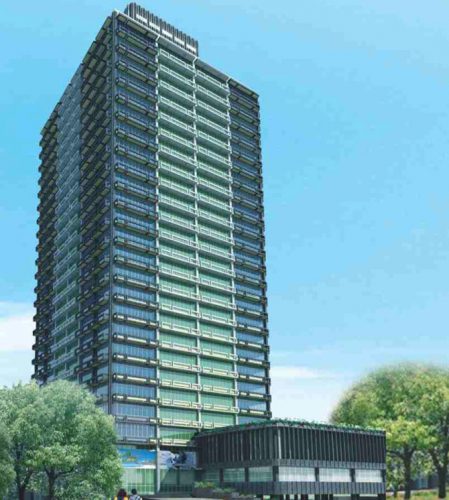When I was working at Deloitte, many of our clients that were US based real estate investment management companies approached us to help structure exits for their investments in India. The regulations laid down several restrictions on foreign investors. The added layer of complexity was the absence of a mechanism for absorption of stabilized product. Typically, pension funds, sovereign funds and REITs are ideal investors for stabilized properties as they seek regular income. In the absence of such a platform, real estate investments in India slowed down especially after the GFC. But the Indian Government has been taking steps to attract international investments. One of them was to enact the REIT legislation in August 2014.
In July 2017, the Embassy Group was the first entity to register its office properties with Securities and Exchange Board of India (SEBI) under a REIT structure. This was a historical day for Indian real estate investments because REITs would bring liquidity to the property type making it a lucrative proposition for international investors. The major concern for limited partners invested in real estate investment management companies was the ‘exit strategy’. Thus, REITs provide the perfect platform to ensure a formalized divesture of their investments.
According to consulting firm KPMG, India has an estimated 350 million square feet of ‘Grade A’ office space, valued at about $65-70 billion, of which about 80-100 million square feet is estimated to be eligible for REITs in the next 2-3 years and valued at about $15-20 billion. Thus far in 2017, more than $2 billion worth foreign investment deals in commercial real estate have been closed. Another $1.4 billion of foreign investment is expected, to build and acquire office assets, and a further $500 million is being raised by domestic funds to buy office projects.
The Embassy office REIT has $600 million of office assets covering 20 million square feet, spread over southern India. The Embassy Group has the Blackstone Group as a partner on these assets, making the latter one of the largest office asset owner in India. Blackstone also bought around a 15% stake in various office projects of K Raheja Corp. for around $250-300 million this year. K Raheja Corp. has 20 million square feet of office space, and plans to add another 15 million square feet. The company may go the REIT way in the future for these assets.

But Blackstone is not alone in the race to acquire high quality commercial rental assets. GIC is in the process to finalizing its investment in DLF’s rental arm for a 33% stake worth $1.39 billion for rental assets in northern India. DLF has about 25 million square feet of leased office space spread across Gurgaon, Hyderabad, Kolkata, Chandigarh and Chennai, which generates a rental of about $300 million crore every year. DLF has leased office space to Samsung and about 100k square feet office space to some other companies.
As the REIT guidelines were undergoing iterations over the last few years to make the structure viable to all parties from a tax perspective Indian real estate saw significant investments taking place in the office sector. For example, in late 2016 Brookfield Asset Management forked out $1 billion to acquire Hiranandani Group’s office and retail assets, making it the largest office transaction to date in India. Brookfield purchased 4.5 million square feet through this deal. Developed over more than a decade, these offices are fully leased, with tenants including Tata Consultancy Services, Nomura Group and Deloitte Consulting India.

What triggered the recent pouring in of investments were the changes in the tax structure attributable to REITs. In the 2016 budget, the dividend distributed by REITs was declared tax exempt by the Government.
Meanwhile, other companies and funds are planning to expand their presence or build their portfolios. RMZ Corp. is strengthening its position as a prominent “Grade A” commercial office space provider by strengthening its presence across important cities. The company plans to raise $1 billion and invest through the RMZ Office Development Fund to grow our assets under management from 21 million square feet to 60 million square feet over the next five years. RMZ Corp.’s rental income is about $300million and will likely grow at a compound annual growth rate (CAGR) of 30%. The money will be raised partly from RMZ’s existing investor and shareholder Qatar Investment Authority and partly from other funds. Once the portfolio reaches a certain size, RMZ may launch a REIT sometime next year to monetize this portfolio.
Xander Group Inc. plans to ramp up its office portfolio after having invested more than $400 million already. The group currently has around 6 million square feet of office in its portfolio, of which 4 million square feet is leased and generating income and 2 million square feet is under development. It also has a strong pipeline of acquisitions that is under diligence, of another 8 million square feet, where it plans to invest $350 million in the next 12 months. Xander and Dutch pension fund asset manager APG Asset Management NV bought an information technology special economic zone in Chennai for $350 million earlier this year.
Three factors are driving interest in commercial real estate demand, while lower than last year, is still high enough; rents have been steady; and there’s a shortage of premium office space in the big cities. Supply of office space across eight major cities fell by nearly 50% in the first half of 2017, compared with the same period last year, property consultant Cushman and Wakefield said in its half yearly report in July. It termed the fall in supply “one of the biggest declines in the last five years”.
It is partnerships between large Indian operators that are open and willing to benefit from experienced international real estate investment management companies that has led to formulaic success for both parties. Fundraising and investments in India’s office space sector are expected to hit a peak as local developers and foreign investors expand their portfolios through fresh investments and acquisitions and ultimately launching REITs to monetize existing portfolios.
https://en.wikipedia.org/wiki/DLF_(company)
